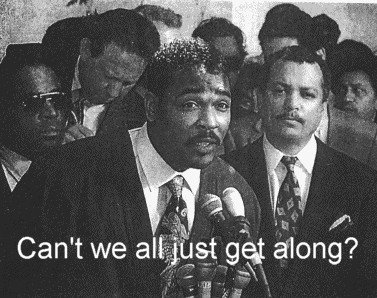Role creep and arguing why RNs are superior for everything is EXACTLY why much of the rest of healthcare looks at the nursing lobby with a critical eye....
Just saying
I must agree with this.
Nursing research is basically nurses claiming what they already do is best. It is even worse than a drug company telling you they conducted research and their new drug is safe and cures all.
Nurses even create awards for places that embrace their position, like the magnet award. (If you think it is about patients or safety, you might want to read with a more critical eye the homepage on who gives it and why)
However, if you notice...
RTs, PAs, perfusionists, and all other manner of healthcare provider has a minimum level of education to practice that is sufficent enough for them to defend their position as experts and the most capable.
Paramedics not only do not have this, they do not embrace it, and they don't even have their own biased research to back it up. All they do is spout their gas about how great they are and how everyone else sucks.
So really, why should anyone treat them as experts or equals much less superior?
US medics don't have the education societies all over the world use as a measurable standard for every profession.
US medics do not have an organization that lobbies for them in a money talks BS walks world. (Don't even try to count the coopted NAEMT)
US medics have not embraced evidence based practice, further degrading their expert position.
US medics do not lobby or accept responsibility for their profession. "But my protocol says..." Medical directors are a dime a dozen, demand change. (of course if you do that and something goes wrong, you have nobody to blame but yourself)
US medics focus their training on an incredibly small portion of medicine. Then claim expertise from experience. How would you like your doctor to learn on the job? Your surgeon? Your aesthesiologist? Your Ob/Gyn?
As it stands today, US nurses are more educated ad more qualified to work prehospital than medics.
Medics have nobody to blame but themselves.
For years I have advocated medics need to increase their education. They always say there is nothing in it for them, they don't want to front the money... I have heard it all.
I asked then and I ask now? Is your job worth the investment? Because somebody more educated is poised to take it from you and/or so pigeon hole you in such a small role that you will be lucky to not need food stamps in a few years.
What if a group of people who think advanced edcation is valuable prehospital over your feeble skills, went out and got nusing degrees, and then started to take over EMS by also finding roles as dual providers, using your skills training as the environment specific training?
Because nurses have done so. Look at your leaders, from educators to dare I say? the NREMT?
You claimed you did not need education. You claimed you were just there for emergencies. You claimed it wasn't worth your time and money.
You said I didn't know what I was talking about. That nurse to medic - medic to nurse street is not 2 way. You have nobody to blame but yourself.
"Even a monkey can intubate..."
A curious phrase.

